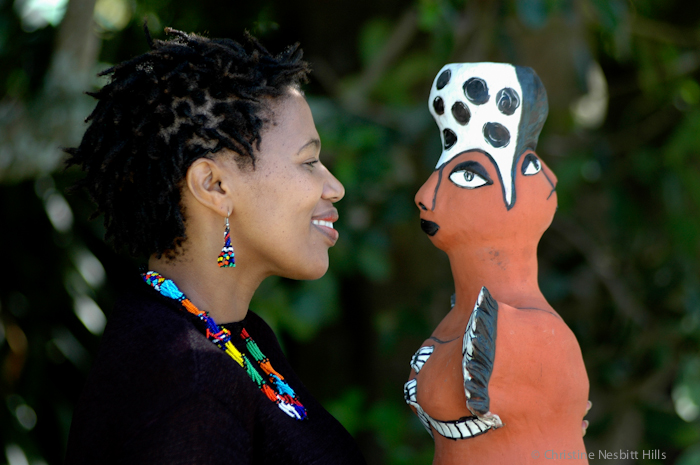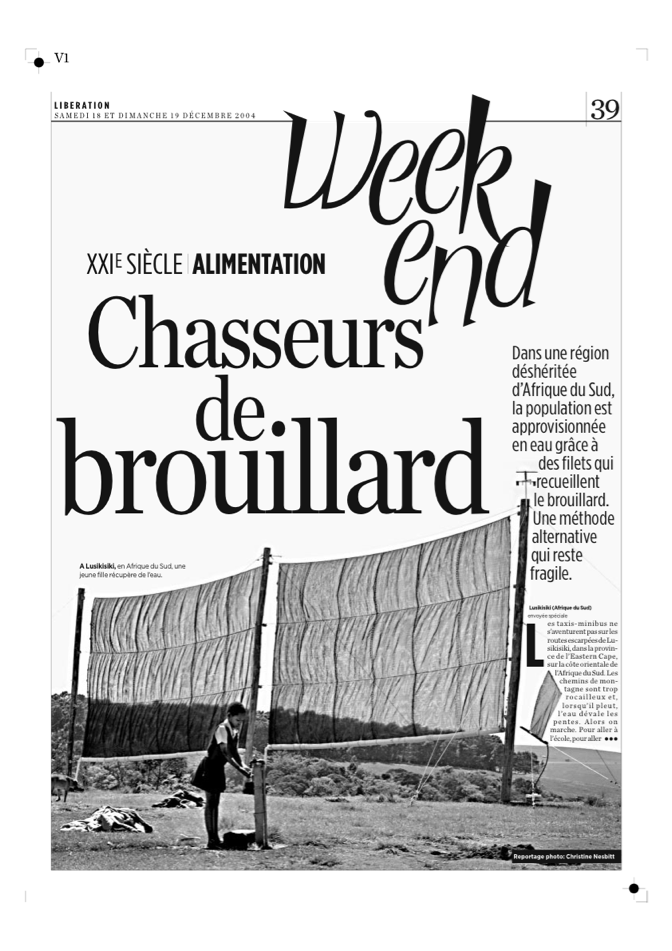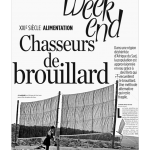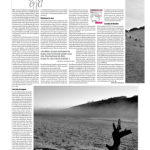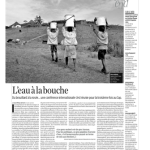From the GAVI Alliance Progress Report, 2006. Click here to download the full report.
Nigeria wages campaign against polio
In March 2007, Nigeria launched the latest in a series of polio immunisation campaigns. Nigeria is one of four polio-endemic countries in the world and the last in Africa. Eradication of the disease calls for a multi-pronged strategy that engages the entire community, from parents and teachers to women’s groups, religious leaders and children.
http://www.unicef.org/photoessays/39194.html
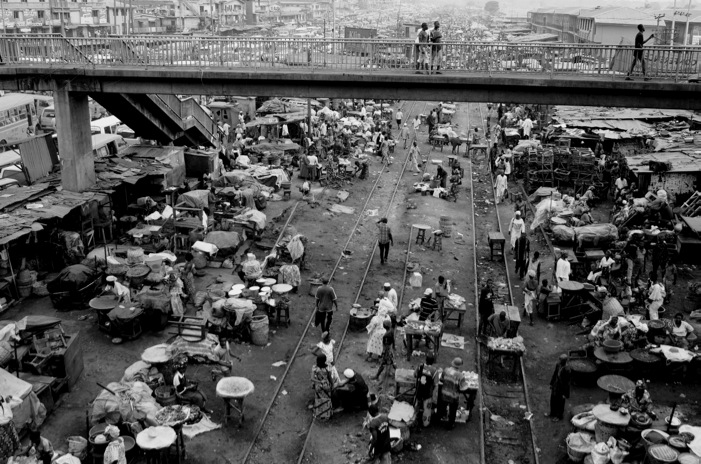 Lagos, Nigeria, 2007
Lagos, Nigeria, 2007
Eastern Cape Artists
South Africa — A portrait series of four artists living and creating art in the Eastern Cape of South Africa. The artists are Roger Gailey, Ayanda Mji, Patrice Moreti, Cher van Schouwen and Zack Taljaard.
Trapping fog in the Eastern Cape, South Africa
Fog nets used to capture water from rain and fog are a developmental initiative in practice in the Eastern Cape of South Africa. Fog forms when water vapour cools down and condenses to form tiny water droplets in the atmosphere. Apart from altitude, there is not much difference between clouds and fog. Fog formation is, however, directly affected by near-surface conditions, adiabatic cooling and flow patterns in the atmosphere. Fog collects on the nets and runs down into a tank. Many locations are suitable for fog water collection. Frequent fog episodes even appear in extremely dry regions, or high altitude mountains, where clean drinking water is not always accessible. Fog water may serve as an additional source of water, which in turn, may contribute significantly to the quality of life.
Protecting children in Liberia
(Above) [NAME CHANGED] Marie, a 14-year-old girl, looks out the window of an interim care centre run by the NGO Samaritan’s Purse International Relief, near Monrovia, the capital in January 2004. Marie was separated from her mother almost a year ago during an attack on her village in north-eastern Liberia. In the resulting confusion, she and four other girls joined one of the fighting groups, where they underwent military training and were issued weapons. After leaving this centre, she hopes to finish school and become a doctor. Taped to the window beside Marie is a poster opposing domestic abuse of women. UNICEF-assisted interim care centres provide children who have been associated with warring factions with counseling and basic educational and skills training to help them reintegrate into civil society.
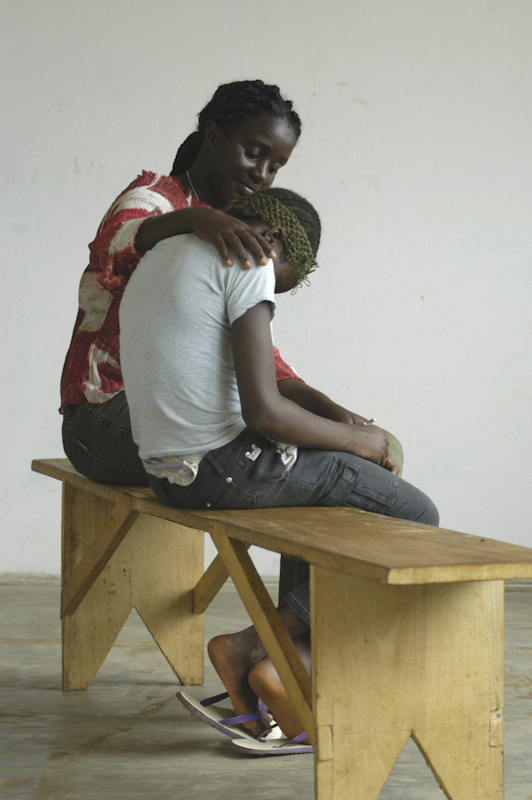
A social worker comforts a 12-year-old refugee girl from neighbouring Sierra Leone, Miata [NAME CHANGED], in an interim care centre run by the NGO Samaritan’s Purse International Relief, near Monrovia, the capital of Liberia in Janaury 2004. Miata came to Monrovia with her mother in July 2003, but her mother was killed one month later in a rocket explosion in the city. She did odd jobs and slept on the streets until she was brought to this centre (although she was not linked to any fighting group). Miata wants to return to her remaining family in Sierra Leone. UNICEF-assisted interim care centres provide children who have been associated with warring factions with counseling and basic educational and skills training to help them reintegrate into civil society.
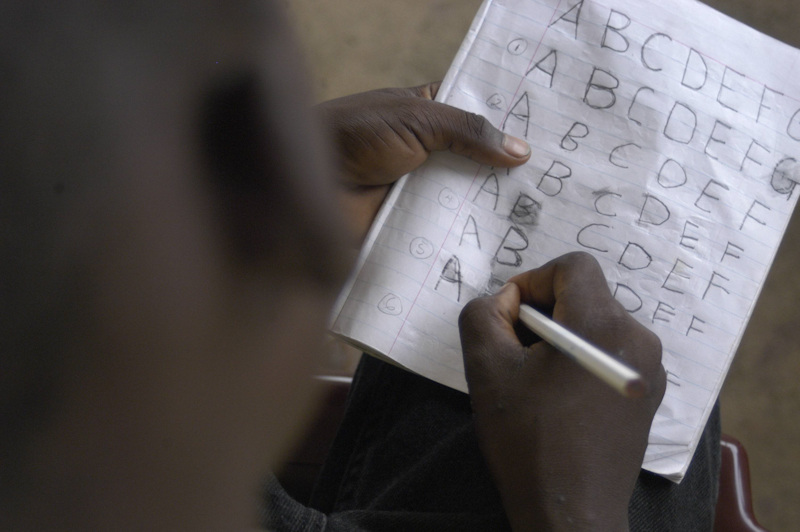
A boy practises writing the capital letters A to G in an exercise book, at a UNICEF-assisted interim care centre run by the international NGO Save the Children-United Kingdom, in Monrovia, the capital of Liberia in January 2004. Formerly a child soldier, the 11-year-old boy, who is from the north-eastern part of the country, was recruited into one of the fighting forces by his peers. He has not seen his family in four years but wants to return to them and to school. He says the first thing that he will do when he returns home is ìrun to my mother. UNICEF-assisted interim care centres provide children who have been associated with warring factions with counseling and basic educational and skills training to help them reintegrate into civil society.
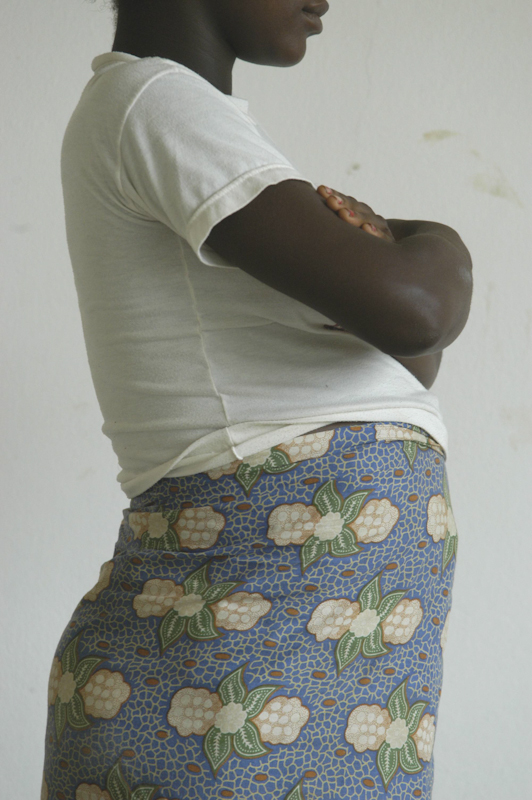
[NAME CHANGED] Julia, a 16-year-old girl, stands in an interim care centre run by the NGO Samaritan’s Purse International Relief, near Monrovia, the capital. Julia is from a village in the eastern part of the country. During the recent fighting, she joined one of the warring groups after being caught in attacks near her village. Her uncle was a soldier in that faction. With nowhere else to turn for protection, Julia began to cook for the soldiers and became the girlfriend of one of them. She is now five months pregnant. UNICEF-assisted interim care centres provide children who have been associated with warring factions with counseling and basic educational and skills training to help them reintegrate into civil society.


